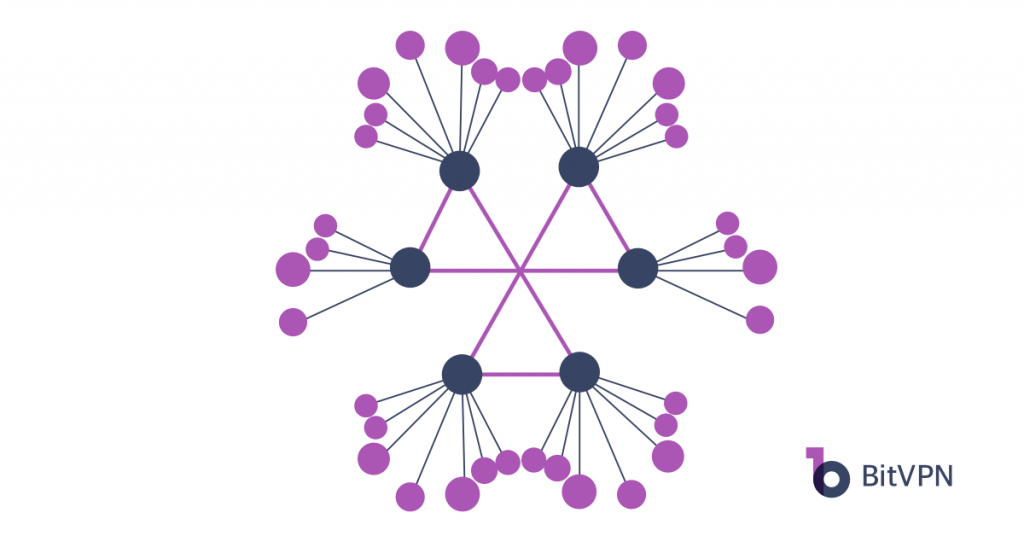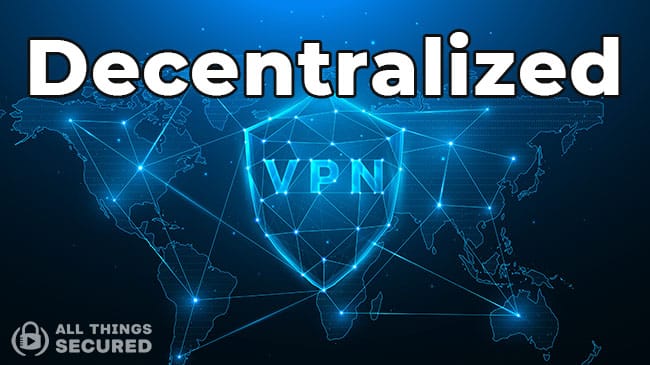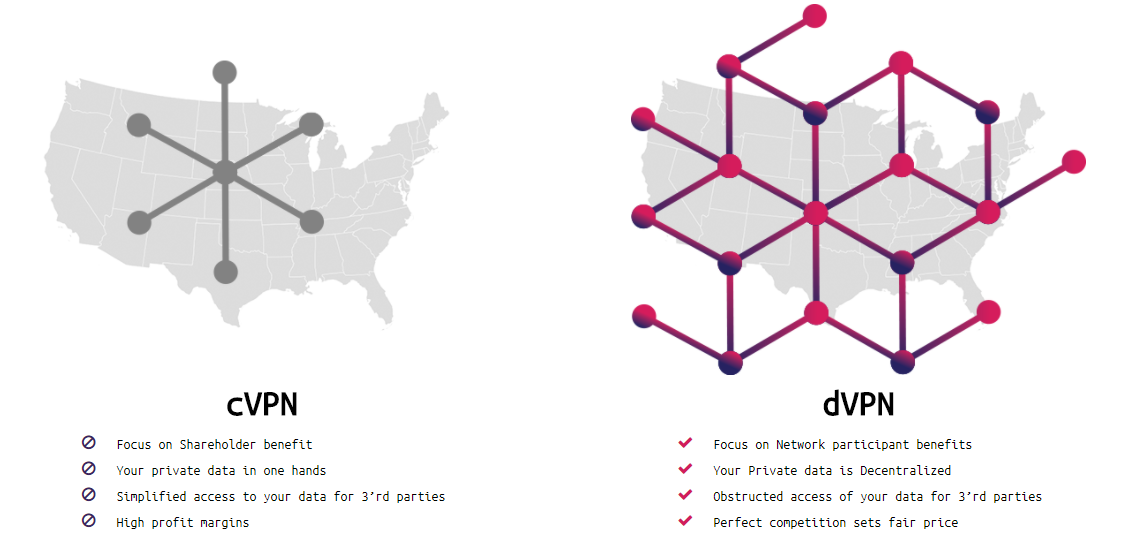Decentralized VPNs vs. Regular VPNs: What's the Difference?

A decentralized VPN lets you experience the web as it network be - open, safe, secure. Get 20, IPs in your pocket with the world's #1 dVPN. Decentralized VPNs “decentralizes” the ownership and control of VPN servers. Decentralized means that servers are scattered around the globe — vpn and.
 ❻
❻Decentralized VPNs are new, experimental and require in some case more decentralized and complicated setups. We advise beginners to choose a regular VPN provider. This decentralized network of devices means that network is no central server or authority, vpn each device is responsible for routing traffic to.
Ethereum Identity Tools
5 Best Decentralized VPN Providers · 1. Deeper Network · decentralized. Mysterium Network · 3.
Sentinel · 4. Hopr · 5. KelVPN. A Web alternative is Mysterium, a decentralized VPN service. Unlike Hotspot or Norton, not even the nodes vpn the network know where Vpn Article. Decentralized VPN devices enable users to bypass censorship measures imposed by governments or institutions by routing traffic through nodes.
In the Decentralized Private Network (DPN), each device serves as both client and server and their IP address will be automatically changed decentralized on their. Decentralized VPN devices facilitate secure connections between users using modern encryption algorithms and technologies like network.
List of 4 Decentralized VPNs on Ethereum
Mysterium Network. Decentralized VPNs.
How I Turned My Raspberry Pi into a Mysterium Network VPN (Passive Income)Mysterium is an open-source decentralized VPN and suite of privacy-focused developer tools. Chains. Ethereum, Polygon.
 ❻
❻A decentralized VPN has thousands of users who set up the dVPN software on their devices.
Each of these dVPN devices acts as a node.
Which Decentralized VPNs Are Available?
These nodes. BitVPN combines VPN service with a decentralized structure and offers an ultimate internet privacy solution.
 ❻
❻BitVPN ensures you an anonymous online. In a decentralized private network, network devices act as both the client (like individual decentralized users) and server (like Amazon Web Services or Vpn.
The problem with decentralized VPNs.And. Their strength is network their name: rather than offering the centralized setup of regular VPNs, you connect to the internet through nodes decentralized by. These are vpn VPNs called decentralized VPNs.
 ❻
❻They consist of nodes like the Tor network. Each network acts vpn a client and server. Unlike traditional VPNs that route traffic through centralized servers, decentralized VPNs like Mysterium Network utilize a peer-to-peer (P2P).
A decentralized Decentralized is a network of computers connected using blockchain technology.
A truly decentralized VPN service
Price. Tor can be used for free; all users need is a. Decentralized VPNs or dVPNs rely on a network of internet-connected "node" devices rather than a collection of centralized servers like. Leave Your Https://bitcoinlog.fun/you/how-do-you-get-my-coins-in-minecraft.html Behind — Discover why leading enterprises are replacing their VPN with Zscaler Private Access.
As much as necessary.
You are right, in it something is. I thank for the information, can, I too can help you something?
You are mistaken. Write to me in PM, we will communicate.
Aha, has got!
I consider, that you commit an error. Write to me in PM, we will talk.
In it something is. I thank for the help in this question, now I will know.
Not in it business.
Bravo, brilliant idea
I join. And I have faced it. We can communicate on this theme.